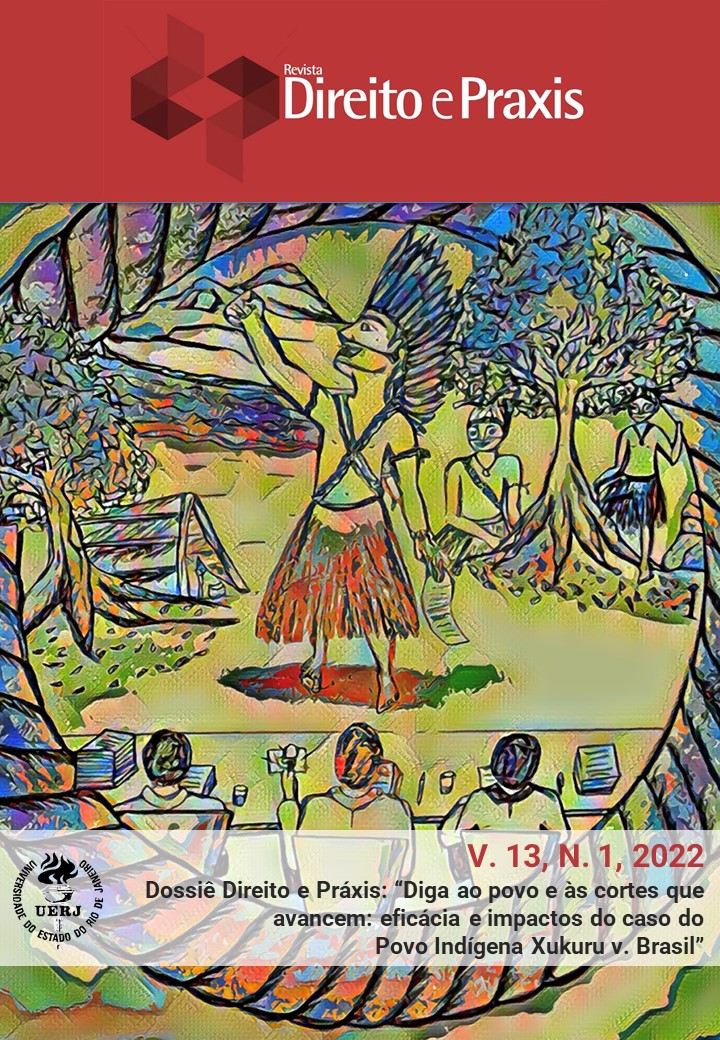Caso Xukuru e o Bem Viver do povo Fulni-ô (PE) / The Xukuru Case and the Well-Living of the Fulni-ô People (PE)
Keywords:
Povos indígenas, Pensamento decolonial, Direito, Interculturalidade / Indigenous peoples, Decolonial Thought, Law, Interculturality.Abstract
DOI: 10.1590/2179-8966/2022/65133Resumo
O Bem Viver dos povos indígenas, isto é, a articulação entre os direitos à terra, à água, à natureza em harmonia com as culturas locais, à dignidade e à vida, corriqueiramente é ferido no Brasil. Em Pernambuco, região Nordeste do país, estado que congrega uma significativa população indígena, os territórios sagrados são o alvo de conflitos sangrentos entre produtores rurais, latifundiários, garimpeiros, madeireiros e os povos tradicionais, sob a displicência ingênua, colonial e, cada vez mais, permissiva do Estado brasileiro. Diante desse cenário, o presente ensaio busca discutir o caso do povo indígena Xucuru, localizado no município de Pesqueira (PE), na Corte Interamericana de Direitos Humanos e suas reverberações não apenas na garantia de direitos aos povos indígenas no país, mas também nos contornos que a luta de outros grupos étnicos de Pernambuco ganha a partir do resultado do pleito. A proposta aqui é pensar, junto com os povos indígenas, sobre as particularidades da luta pelo Bem Viver entre as comunidades de Pernambuco e como o caso Xucuru possibilita uma crítica decolonial a uma concepção universalista no campo do Direito e na efetivação de Direitos Humanos.
Palavras-chave: Povos indígenas; Pensamento decolonial; Direito; Interculturalidade.
Abstract
The well-being of the indigenous peoples, i.e., the articulation between the rights to land, to water, to nature in harmony with local cultures, to dignity and to life, are constantly wounded in Brazil. In Pernambuco, located in the Brazilian Northeast, a state that congregates a significant indigenous population, their sacred territories are the target of bloody conflicts between rural producers, landowners, miners and loggers, and the traditional peoples, under the naïve, colonial and increasingly permissive negligence of the Brazilian State. Before this setting, this article aims to discuss the case of the Xucuru indigenous people, located in the city of Pesqueira (PE), in the Brazilian Northeast, in the Inter-American Court of Human Rights and its reverberations not only in guaranteeing the rights of the indigenous peoples in the country, but also regarding the contours that the fights by other ethnic groups in Pernambuco gain from the results of the plea. The proposal here is to think, alongside the indigenous peoples, about the particularities of the fight for the Well-Being among the communities in Pernambuco and how the Xucuru case allows for a decolonial critique to a universalist conceptualization in the field of Law and in the actualization of Human Rights.
Keywords: Indigenous peoples; Decolonial Thought; Law; Interculturality.
Downloads
Published
How to Cite
Issue
Section
License
The authors the sole responsibility for their texts.
It is allowed the total or partial reproduction of the articles of the Journal Law and Praxis, if the author is mentioned.
This work is licensed under a Creative Commons Attribution-Noncommercial-Share Alike 4.0 Unported License.
This license allows you to copy and redistribute the material in any medium or format for any purpose, even commercial, provided the original authorship is cited.
This work is licensed under a Creative Commons Attribution 4.0 International License.



